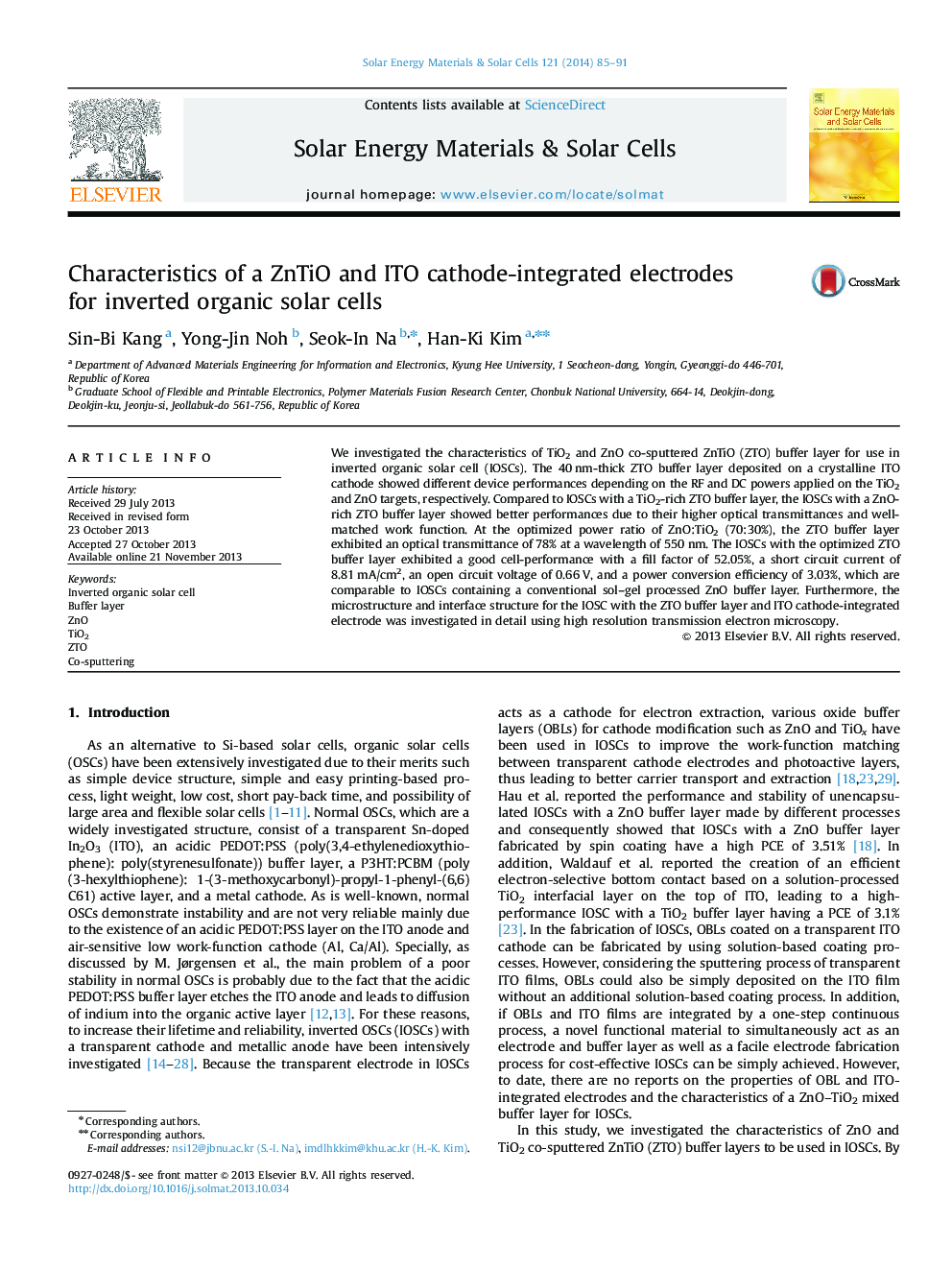| کد مقاله | کد نشریه | سال انتشار | مقاله انگلیسی | نسخه تمام متن |
|---|---|---|---|---|
| 78209 | 49320 | 2014 | 7 صفحه PDF | دانلود رایگان |

• The characteristics of TiO2 and ZnO co-sputtered ZTO films were investigated as a buffer layer in inverted OSCs.
• The performance of the sputtered ZTO buffer layer was critically affected by the ZnO and TiO2 composition.
• The ZnO-rich ZTO film is a promising buffer layer for use in inverted OSCs.
We investigated the characteristics of TiO2 and ZnO co-sputtered ZnTiO (ZTO) buffer layer for use in inverted organic solar cell (IOSCs). The 40 nm-thick ZTO buffer layer deposited on a crystalline ITO cathode showed different device performances depending on the RF and DC powers applied on the TiO2 and ZnO targets, respectively. Compared to IOSCs with a TiO2-rich ZTO buffer layer, the IOSCs with a ZnO-rich ZTO buffer layer showed better performances due to their higher optical transmittances and well-matched work function. At the optimized power ratio of ZnO:TiO2 (70:30%), the ZTO buffer layer exhibited an optical transmittance of 78% at a wavelength of 550 nm. The IOSCs with the optimized ZTO buffer layer exhibited a good cell-performance with a fill factor of 52.05%, a short circuit current of 8.81 mA/cm2, an open circuit voltage of 0.66 V, and a power conversion efficiency of 3.03%, which are comparable to IOSCs containing a conventional sol–gel processed ZnO buffer layer. Furthermore, the microstructure and interface structure for the IOSC with the ZTO buffer layer and ITO cathode-integrated electrode was investigated in detail using high resolution transmission electron microscopy.
Figure optionsDownload as PowerPoint slide
Journal: Solar Energy Materials and Solar Cells - Volume 121, February 2014, Pages 85–91